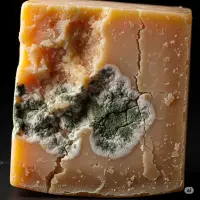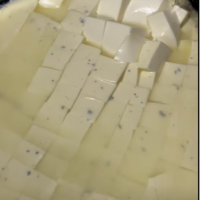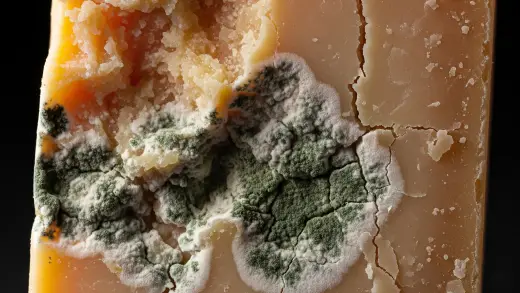Yes, mozzarella cheese can go bad. Signs that mozzarella has spoiled include:
- Appearance: Mold growth, discoloration, or a slimy texture.
- Smell: A sour, off, or unpleasant odor.
- Taste: A sour or unusual taste indicates spoilage.
To keep mozzarella fresh, store it properly in the refrigerator and consume it before the expiration date. Fresh mozzarella should be consumed within a few days, while packaged mozzarella can last up to a few weeks if unopened. Always follow safe food handling practices.
Introduction
Mozzarella cheese is one of those ingredients that elevates every dish it graces, from a classic Caprese salad to a gooey grilled cheese sandwich.
But as any cheese lover knows, nothing dampens the culinary spirit more than discovering your beloved mozzarella has gone bad. For home cooks, cheese enthusiasts, food bloggers, and health-conscious consumers alike, understanding the shelf life of mozzarella and how to store it properly is crucial.
In this post, we’ll explore everything you need to know about mozzarella cheese’s shelf life, how to identify when it’s past its prime, and the best ways to keep it fresh for longer.
We’ll also cover some creative uses for overripe mozzarella, ensuring no cheese goes to waste. From delicious recipes to safe disposal methods, we’ve got you covered.

Understanding the Shelf Life of Mozzarella
Mozzarella comes in various forms, each with its own shelf life. Fresh mozzarella, often found in brine or vacuum-packed, is delicate and should be consumed within a week of purchase.
On the other hand, packaged or shredded mozzarella can last longer, typically up to four weeks in the fridge. Always refer to the mozzarella cheese expiration date on the packaging for guidance.
For a cheesy delight, try incorporating mozzarella into a grilled cheese sandwich. The creamy texture of mozzarella makes it a perfect candidate for melting.
Different Types of Mozzarella
The type of mozzarella you choose can significantly impact its shelf life. Fresh mozzarella, often stored in liquid, is best when consumed fresh and quickly. It offers a softer texture and milder flavor compared to its drier, packaged counterpart.
Packaged mozzarella, such as blocks or shredded varieties, usually contains preservatives to extend its shelf life. These are perfect for cooking and can be stored in the fridge for several weeks.
Expected Shelf Life for Each Type
For fresh mozzarella, expect a shelf life of up to a week once opened and stored in the fridge. If left unopened, it can last up to two weeks in the fridge. Once opened, shredded mozzarella should be consumed within five days to ensure freshness, although it can last up to four weeks if unopened.
For more detailed information on how long your mozzarella lasts, you can check out this handy guide.

Signs That Mozzarella Cheese Has Gone Bad
Identifying spoiled mozzarella is essential for avoiding potential health risks and ensuring your dishes taste their best.
Visual Cues Mold Discoloration and Texture Changes
Always inspect your mozzarella for visual signs of spoilage. If you notice mold on the cheese, it’s best to discard it promptly. Mold in cheese is a clear indicator that the cheese has gone bad, even if it’s just a small part. Discoloration, such as yellowing or gray patches, is another red flag. Additionally, a change in texture, from soft and springy to slimy or crumbly, indicates spoilage.
Smell and Taste Indicators of Spoilage
Your senses are your best ally when determining if mozzarella has gone bad. Fresh mozzarella should have a mild, milky aroma. If you detect a sour, ammonia-like smell, it’s time to toss it. Taste can also be a guide; if it tastes off or unpleasant, it’s best not to consume it.
How to Properly Store Mozzarella Cheese
Proper storage is key to extending the life of your mozzarella cheese and maintaining its delicious flavor.
Best Storage Practices for Fresh and Packaged Mozzarella
For fresh mozzarella, store it in the liquid it came in and keep it tightly sealed in the fridge. If you don’t have the original packaging, place it in a container with a little salted water.
For packaged mozzarella, keep it in its original packaging until ready to use. Once opened, reseal it tightly with plastic wrap or transfer it to an airtight container.
Tips to Extend the Shelf Life
To extend the shelf life of mozzarella, consider freezing it. While this may alter its texture slightly, it’s a great option for cooking. Thaw frozen mozzarella in the fridge overnight before using.
Another tip is to keep mozzarella away from pungent foods, as it can absorb odors easily. Store it in a separate compartment or use odor-absorbing materials to maintain its fresh aroma.

Risks of Eating Spoiled Mozzarella
Eating spoiled mozzarella can lead to foodborne illnesses, which can be unpleasant and potentially serious.
Potential Health Risks
Consuming moldy cheese or mozzarella that’s past its expiration date can introduce harmful bacteria into your system. These bacteria can lead to food poisoning, causing symptoms like vomiting, diarrhea, and stomach cramps.
Symptoms of Food Poisoning
If you’ve eaten bad cheese, you may experience symptoms within hours. These can include nausea, vomiting, abdominal pain, diarrhea, and fever. If symptoms persist or are severe, it’s important to seek medical attention.
What to Do with Mozzarella That’s Past Its Prime
While it’s best to consume mozzarella while it’s fresh, there are still ways to make use of cheese that’s past its prime.
Safe Disposal Methods
If your mozzarella has gone bad, discard it safely by sealing it in a plastic bag before throwing it away. This prevents mold spores from spreading in your kitchen.
Creative Uses for Overripe Cheese
If your mozzarella is still edible but not at its peak, consider using it in cooked dishes. It can be melted into sauces, used in casseroles, or even added to soups for a creamy texture. Alternatively, compost it as a natural fertilizer for your garden, provided it’s not moldy. Remember, while spoiled cheese isn’t safe to consume, it can still be useful for gardening.
Conclusion
Mozzarella cheese is a versatile and beloved ingredient in many kitchens. Understanding its shelf life and proper storage techniques ensures that you can enjoy its creamy goodness without any health risks.
By recognizing the signs of spoilage and employing smart storage practices, you can keep your mozzarella fresh and delicious for longer.
Prioritize food safety, and remember to trust your senses when determining if your cheese is still good to eat. And if you’re unsure, it’s always better to err on the side of caution.
For more tips on mozzarella and other cheeses, consider exploring additional resources or consulting with cheese experts in your community. Happy cooking and savoring the delightful flavors of mozzarella cheese!














